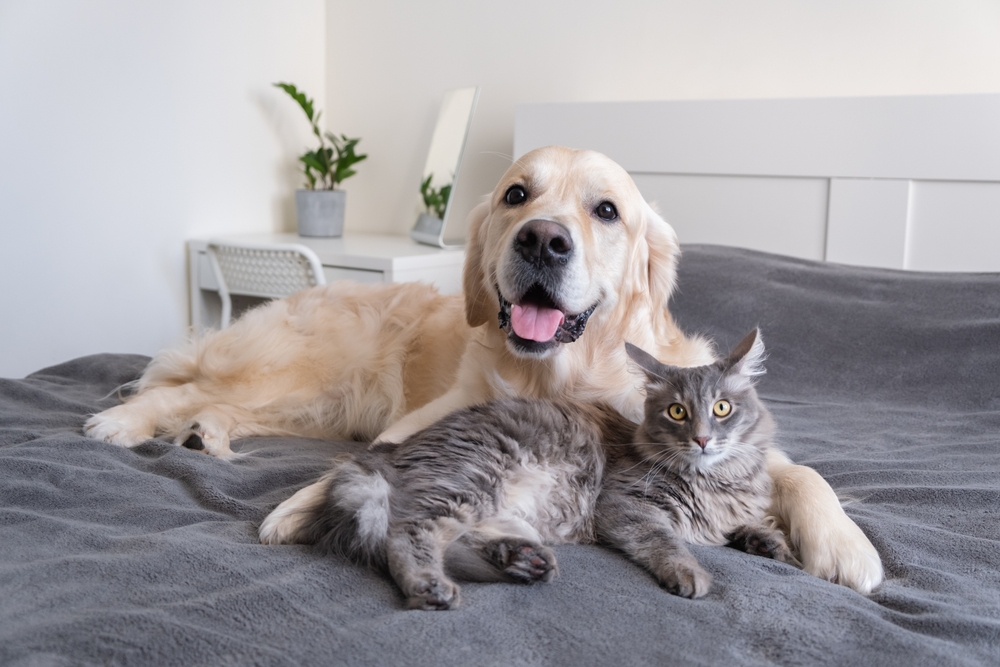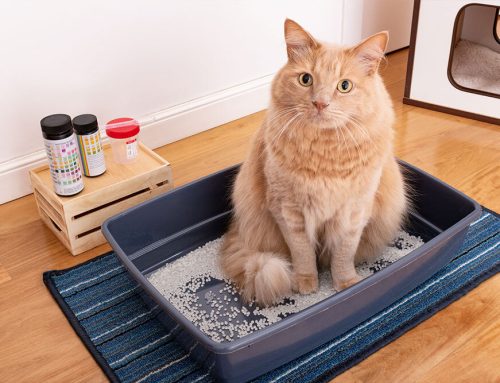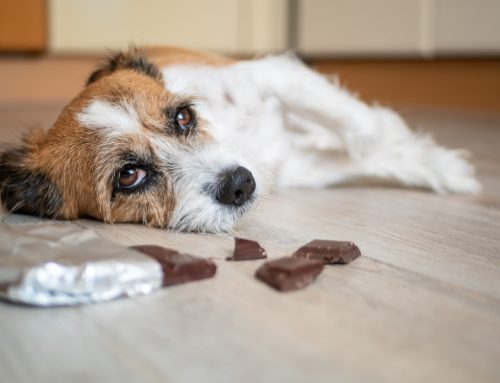Keeping Pets Entertained During Recovery: Safe Crate-Friendly Ideas
When your pet is recovering from surgery or illness, rest is vital- but that doesn’t mean recovery has to be dull or stressful. Whether you’re helping a dog through crate rest or keeping a cat calm after surgery, the right enrichment can make healing easier and more enjoyable.
At Driftwood Animal Hospital in Daytona Beach, FL, we help families design recovery plans that balance rest, comfort, and safe mental stimulation- so healing stays on track while tails keep wagging and purrs keep coming.
Why Crate Rest Matters
Crate rest gives your pet a quiet, controlled space to heal safely. After surgery or injury, tissues and joints need time to repair. Limiting activity prevents jumping, running, or twisting motions that could disrupt sutures or delay recovery.
It’s normal for pets to feel frustrated when confined, especially if they’re used to being active. Some may whine, paw, or pace; others may hide or refuse food. These reactions are natural- and manageable.
With gentle structure, patience, and a few creative activities, you can help your pet stay calm and comfortable while their body recovers.
Safe Enrichment Ideas for Dogs
Interactive Feeding and Puzzle Toys
Feeding time is the perfect opportunity for mental exercise. Try soaking your dog’s regular kibble with a little low-sodium broth, then stuff it into a Kong and freeze it for a longer-lasting challenge. Puzzle feeders and slow-dispensing toys encourage your dog to think, sniff, and stay engaged without overexerting.
Simple DIY enrichment ideas like snuffle mats, muffin-tin treat games, or cardboard “treasure hunts” keep things interesting while your dog rests.
To make recovery more comfortable, explore these tips on how to make your dog’s cone more comfortable. Even small adjustments can help your pet relax and rest more easily.
Training for Calm Focus
Low-energy games reinforce good behavior and reduce boredom. The engage-disengage training game is a great way to practice impulse control and reward calm attention.
You can also refresh simple commands like “sit,” “stay,” and “down.” Keep training sessions short and positive, with lots of praise and gentle encouragement. The goal isn’t perfection- it’s building connection and confidence while your pet heals.
Choosing Safe Chews
Chewing helps relieve stress, but it’s important to choose recovery-safe options. Avoid hard bones or rawhides that could cause injury or strain. Instead, try soft, digestible chews or frozen, pet-safe treats.
Learn more about safe chew toys for dogs and talk to your veterinarian before introducing anything new- especially if your pet has dietary restrictions or oral sutures.
When Crate Rest Isn’t Enough
Not every pet adjusts easily to confinement. High-energy dogs or anxious pets may need extra help to stay calm during recovery.
- Medication Support: In some cases, short-term anti-anxiety or mild sedative medications may be recommended to keep your pet relaxed and prevent self-injury. These are safe when prescribed and monitored by your veterinarian.
- Leash Alternatives: If your pet panics in a crate, try tethering them to a sturdy table leg or desk near you. This keeps movement limited while allowing companionship and reassurance.
- Gentle Outings: For pets who crave variety, consider slow “wagon rides” or carrying them in a secure stroller or backpack for a brief change of scenery. These outings provide enrichment without physical strain- especially valuable for curious dogs and cats recovering indoors.
Your veterinarian can help tailor these strategies to your pet’s temperament and medical needs.
Engaging Activities for Cats
Gentle Play and Exploration
Cats recovering from surgery or illness need quiet enrichment too- just within safe limits. Encourage gentle exploration with crinkly paper balls, soft toys, or boxes near their rest area.
You can add variety through scent games. Try sprinkling catnip or silvervine on a towel, or hiding treats to encourage foraging instincts. For creative options, explore scent-based enrichment for cats.
Learn additional tips on helping cats recover comfortably from surgery, including how to keep them calm and safe while they heal.
Low-Energy Enrichment for Comfort
Short, quiet play sessions can keep cats content without overstimulation. Slowly move a feather wand near the crate or let them watch a bird video from their recovery bed. The goal is gentle engagement- just enough to satisfy their curiosity while keeping their body still.
Creating a Comfortable Recovery Space
A peaceful environment encourages healing.
- Keep your pet’s crate in a calm spot where they can still see and hear family life.
- Use soft, supportive bedding and maintain a comfortable temperature.
- Some pets prefer a covered crate for privacy; others relax more when they can see their surroundings.
- Soft background music or white noise can mask sudden sounds and reduce anxiety.
These small comforts help pets settle and support a smoother recovery.
Monitoring Your Pet’s Progress
Observe your pet after every activity. They should appear calm and relaxed- not panting, restless, or in pain. Adjust activity levels based on how they respond.
Every recovery looks different. Some pets crave interaction one day and rest the next. Follow their lead, and share any changes in appetite, energy, or attitude with your veterinary team.

Partnering With Your Veterinary Team
Healing is always a partnership. Stay in touch with your veterinarian to confirm when it’s safe to add new activities or increase exercise.
The team at Driftwood Animal Hospital offers personalized guidance for every recovery stage, helping you balance rest, comfort, and enrichment. We’ll also help you recognize signs of pain, infection, or stress that require attention.
Our veterinary services include post-surgical monitoring, pain management, and complementary therapies to support both physical and emotional healing.
Making Recovery a Positive Experience
Crate rest may feel restrictive, but it’s temporary- and it plays a vital role in ensuring your pet heals fully and comfortably. With patience, creativity, and professional support, recovery can become a time of quiet connection and trust.
If your pet struggles with confinement, appears unusually anxious, or seems painful, reach out for guidance. At Driftwood Animal Hospital, we’re here to make recovery easier for both you and your pet- from enrichment ideas to complete medical follow-up.
Request an appointment or call (386) 255-1407 to discuss your pet’s recovery plan today. Together, we’ll keep them healing, comfortable, and happy- one gentle step at a time.








Leave A Comment